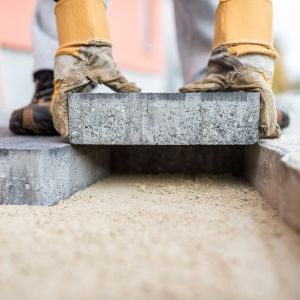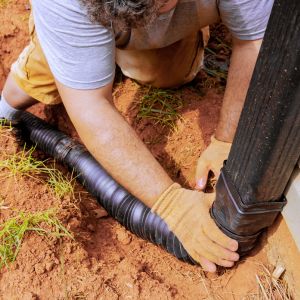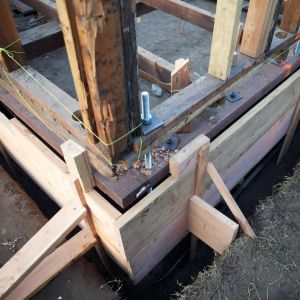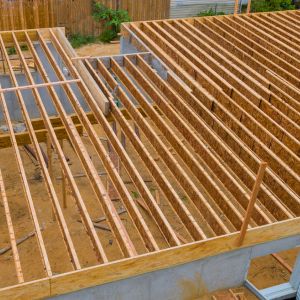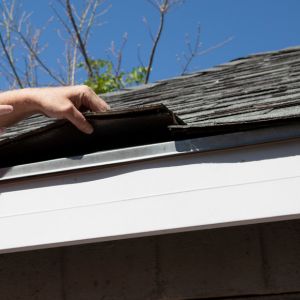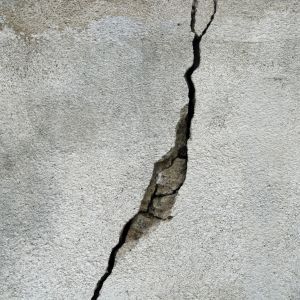Soil Stabilization
Soil Stabilization is a ground improvement service employed in Houston, enhancing the physical properties of soil, maximizing its load-bearing capacity and minimizing soil erosion.
Our Testimonials
What is Soil Stabilization
Soil Stabilization is a process that alters the physical properties of soil to improve its strength, durability, and overall performance. In the context of construction and engineering in Houston, soil stabilization is a crucial service. It increases soil’s load-bearing capacity, making it suitable to support buildings, roads, and other structures. Moreover, it helps in controlling erosion, dust, and silt run-off, thereby ensuring the environmental sustainability of a project. Soil stabilization is essential in handling issues related to the wide variety of soil types found in the Houston area, including clay, loamy, sandy, or silty soils. Despite not going too much into the process, it’s worth noting that soil stabilization employs several techniques tailored to the specific requirements of a project, enhancing the city’s infrastructure, and sustaining its rapid urban developmental efforts.

Soil Stabilization Process
The process of soil stabilization in Houston involves modifying the properties of soil to improve its strength and durability. The procedure includes adding materials, often known as binders (such as lime, cement, or composites) to strengthen the soil and enhance its physical properties. For optimal results, professionals conduct extensive terrain analysis to determine the composition of the soil and the most suitable stabilization method to apply. Not only does soil stabilization mitigate the issues of poor ground conditions, but it also helps resist soil erosion and soil shrinkage that can lead to foundation problems. Such professional soil stabilization efforts particularly prove crucial in construction projects in Houston for both residential and commercial purposes, helping in safeguarding the structural integrity of buildings and other infrastructures developed on the treated soil.
Importance of Soil Stabilization
Soil stabilization in Houston is a critical process in the construction industry. It involves enhancing the properties of soil, making it more robust and durable for construction-related activities such as building roads, bridges, and buildings. The importance of soil stabilization cannot be overemphasized. Firstly, it significantly reduces the risk of soil erosion, a common problem in Houston’s construction sites due to seasonal changes and weather conditions. With stabilized soil, the construction projects get a robust base, ensuring the durability and longevity of the structures. Secondly, soil stabilization allows for improved water drainage, which further prevents soil erosion and waterlogging issues. Hence, it’s an invaluable technique in construction, playing a pivotal role in maintaining the structural integrity and durability of Houston’s infrastructure.
Get a Free Consultation

Signs that you need Soil Stabilization
Observing a few critical signs could suggest that your residential or commercial property in Houston requires professional Soil Stabilization services. Noticing the formation of cracks on both exterior walls and your home’s interior could indicate problematic soil movement beneath your property. These cracks may also extend along your driveway, patio, or sidewalk, indicating foundational instability as resulted from the shifting or weakening soil. Other signs could be doors, and windows that no longer fit correctly in their frames or become challenging to open. This difficulty can show your foundation shifting due to changes in the soil underneath. In more severe instances, you might also observe sinks or depressions in your yard, an indication of significant soil erosion or instability. Water pooling, after rain, in areas of your yard that typically drain well could also be a sign of soil problems that might require soil stabilization. Lastly, if you see the plumbing system frequently clogging and breaking, that’s a possible symbol of soil settling.
Cost Efficiency of Professional Soil Stabilization
Professional soil stabilization in Houston is highly cost-efficient, especially when considering the long-term benefits and the potential cost of not addressing soil-related issues early. This service is crucial for both residential and commercial property owners to ensure the structural integrity of buildings and landscapes, as well as mitigating potential erosion and sedimentation problems. Houston residents recognize soil stabilization in tackling expansive clay soils common in the region which have high shrink-swell characteristics leading to foundation woes. Hiring professionals for this task often proves to be a cost-effective decision. It provides an economical solution by reducing the need for expensive subsurface drainage systems, and lowering maintenance costs. Furthermore, effective soil stabilization also enhances property values by preventing damages linked to soil movements. The overall cost can vary depending on the size and complexity of the project, but the investment in professional soil stabilization not only ensures high-quality work done right the first time, but it also grants property owners a peace of mind of knowing that their properties are safe and protected. A professional in this field has the expertise, equipment, and materials that are necessary to effectively stabilize the soil while keeping the expenditure within budget. Hence, the cost efficiency of professional soil stabilization in Houston is considerable and an investment worth making.
Get a Free Consultation
Soil Stabilization use cases
Soil stabilization in Houston plays a pivotal role in several construction and infrastructure projects within the city. This process, often employed in areas with weak soil properties, is essential for enhancing and modifying the characteristics of the soil. It provides overall strength and stability, making it an ideal solution for constructing roads, commercial buildings, or residential properties. From mitigating dust, controlling erosion, and enhancing roads’ durability to resolving soil-related issues on construction sites, soil stabilization offers wide-ranging applications. Additionally, this technique helps in rehabilitating degraded lands, laying foundations for warehouse floors, and paving the grounds for parking lots. Industry experts also use it to establish firm bases for pipelines, enabling smooth oil and gas operations. Moreover, by improving the load-bearing capacity of roads, soil stabilization contributes to prolonging its lifespan. Thus, the utilization of soil stabilization in Houston is instrumental in ensuring cost-effectiveness, durability, and sustainability of numerous construction undertakings.

What our customers ask about Soil Stabilization
What is soil stabilization?
Soil stabilization is a process that enhances the strength and durability of the soil, making it suitable for construction and other applications.
Why is soil stabilization important?
Soil stabilization is essential to prevent soil erosion, improve load-bearing capacity, and create a stable foundation for structures.
How does soil stabilization work?
Soil stabilization involves adding materials like cement, lime, or chemicals to the soil to alter its properties and make it more stable.
What are the benefits of soil stabilization?
Soil stabilization helps reduce maintenance costs, extends the life of roads and structures, and ensures a safer and more reliable environment.
Where is soil stabilization commonly used?
Soil stabilization is frequently used in road construction, building foundations, and industrial sites to ensure a solid and secure base.
Can soil stabilization be environmentally friendly?
Yes, some eco-friendly soil stabilization methods use natural additives and reduce the environmental impact.
What are the common materials used in soil stabilization?
Materials like cement, lime, fly ash, and polymer additives are often used in soil stabilization to improve soil properties.
How does soil stabilization affect construction projects?
It ensures that the ground can support the weight of buildings, roads, and infrastructure, reducing the risk of settlement and damage.
Is soil stabilization cost-effective?
Yes, soil stabilization can be cost-effective because it minimizes maintenance and repair costs in the long run.
What are the challenges of soil stabilization?
Challenges can include finding the right stabilization method for specific soil types and ensuring proper mixing and application.
Can soil stabilization be used for landscaping?
Yes, it can be employed to create stable and erosion-resistant surfaces for gardens, parks, and recreational areas.

